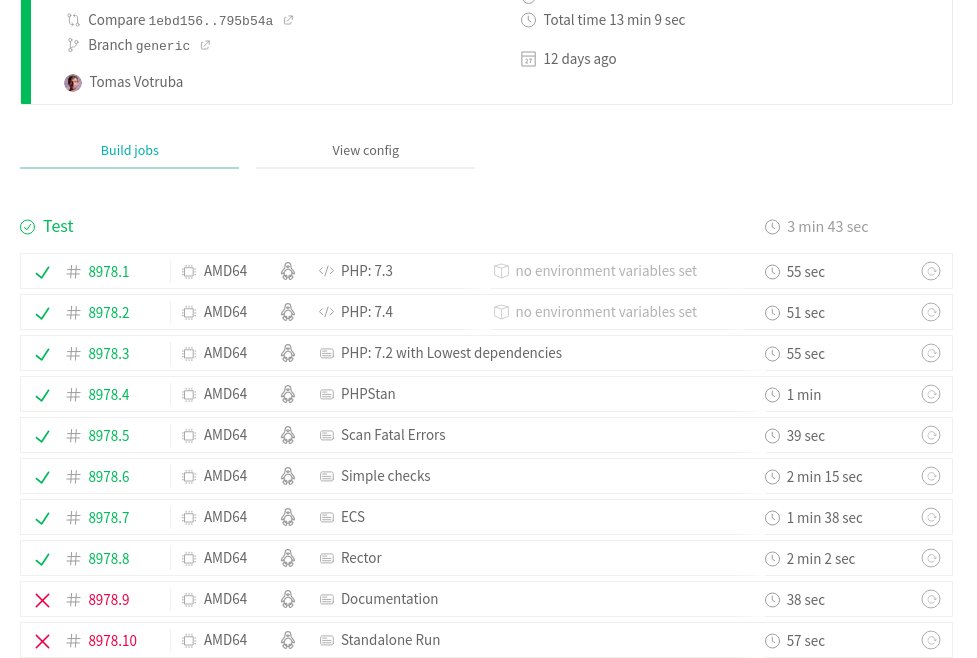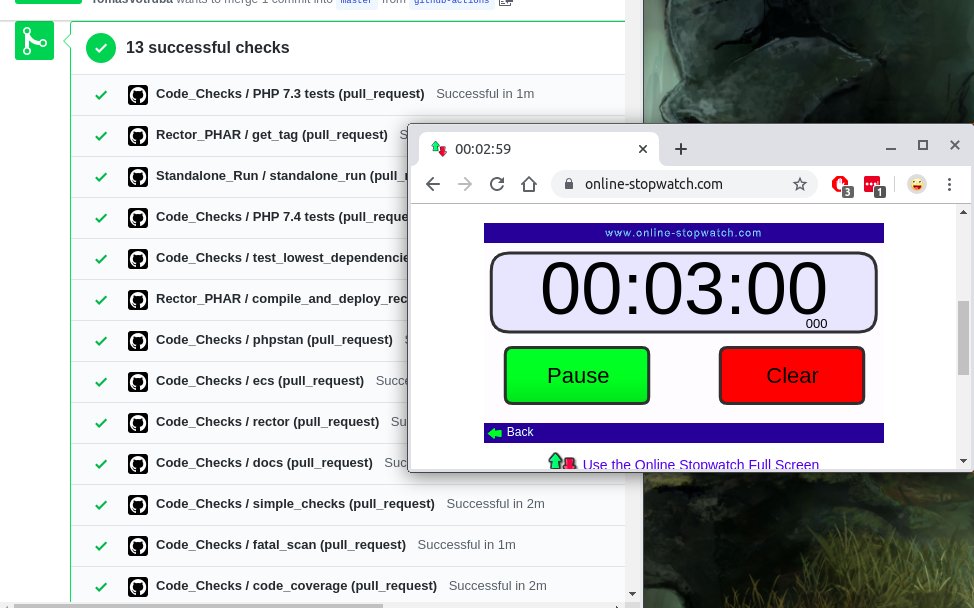Why is First Instant Feedback Crucial to Developers?
Do you open-source? Then you know that instant feedback is crucial to your contributors. The same applies to private companies.
There are 2 types of feedback: from human and machine.
Which and how can we improve?
<Faster|Slow> Reaction → <T>Result
When they send PR to your project, and you let them wait for a week, they won't be so excited to process your code-review.
But when you react the same day or same hour, there is a significant change the PR will be updated and merged on the same day.
Honestly, maintainers are not human routers for Github notifications, and you have to be lucky to hit them at the same time you're online.
How can we make feedback instant anyway?
More than 5 minutes? We've Lost a Contributor
Do you know TTFB - time to first byte - from front-end world?
There could be TTFF for pull-request: time to first feedback.
In my experience, when someone creates a PR to an open-source, they have carefully made time for it. In today's attention economy, its the most expensive resource people have.
Example: How an Hour for Open-Source is used?
Let's say you have started your dedicated hour to open-source a week.
You send PR with your feature, the maintainer is not online, so you wait:
- 5 minutes...
- 10 minutes...
- 13 minutes...
- ...and CI failed on test case
You fix the test, send new commit to the PR branch and wait:
- 5 minutes...
- 10 minutes...
- 13 minutes...
- ...and CI fails on invalid coding standards
Now you've spend 40 minutes of your 60 minutes by:
- 10 minutes making feature
- 4 fixing one test case
- 26 minutes by waiting
That's 65 % percent time wasted.
This makes me wanna throw the computer out of the window, procrastinate, check my messages or another shallow work that ruins all my focus.
True story, this was the situation for CI in Rector in 2019. It was soo frustrating. And I don't talk about code coverage with Xdebug that took us 33 minutes.
Have you Met... Github Actions?
A miracle came to my life. Exactly week ago Markus Staab talked about the idea of trying Github Actions in Rector repository to ease work to Travis CI.
What are Github Actions?
I've heard about Github Actions, but I didn't get the idea. Is it for deploy or a bot?
Now I know it's basically Github CI (honestly, they should rename it).
How does it work? Like in any other CI (Travis CI, Gitlab CI, Bitbucket CI, Circle CI, Jenkins...), we basically:
- configure some YAML file
- push some code change to your git
- and wait for a green or red light
That's it! I used obvious choice for open-source - Travis CI - for the last 8 years, but the speed was bugging me.
When I saw first pull-request by Markus, I had no idea where this will end.
Travis CI and Github Actions in Numbers
From all the metrics out there, these tell the main story:
Travis CI
- 3 concurrent jobs
- waits 1-4 minutes after commit, before it even starts
Github Actions
- 20 concurrent jobs
- starts all jobs in 20-30 seconds after the commit
And how does the switch affected the Rector repository?

↓

From ~15 minutes to just 3 minutes.
I was amazed! Thank you, Mark, for making this happen.
In the next post, we'll look at practical migration of common and less-common open-source features. We'll look at Github Actions' weaknesses and migrate a massive pipeline with 15 jobs.
Happy coding!